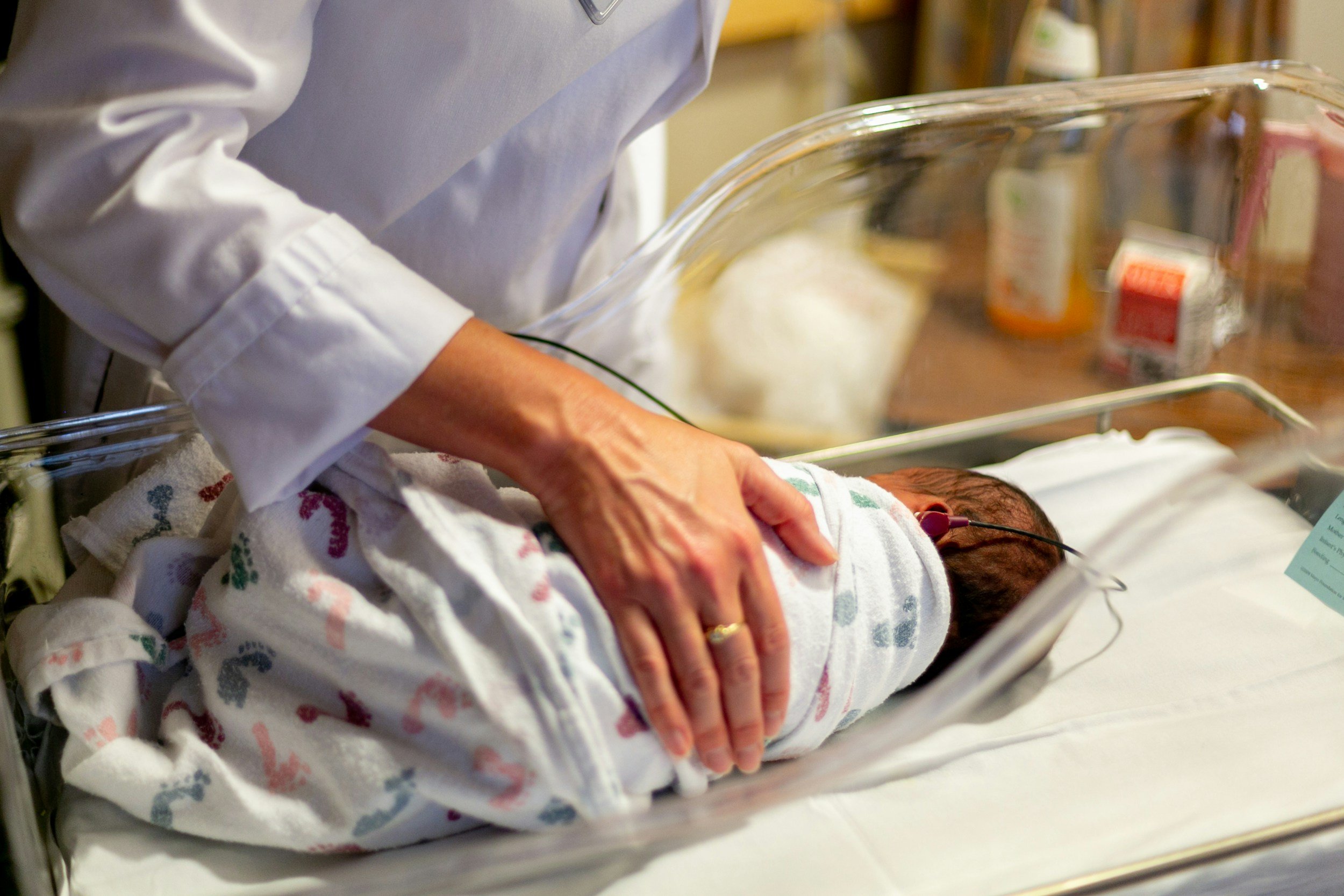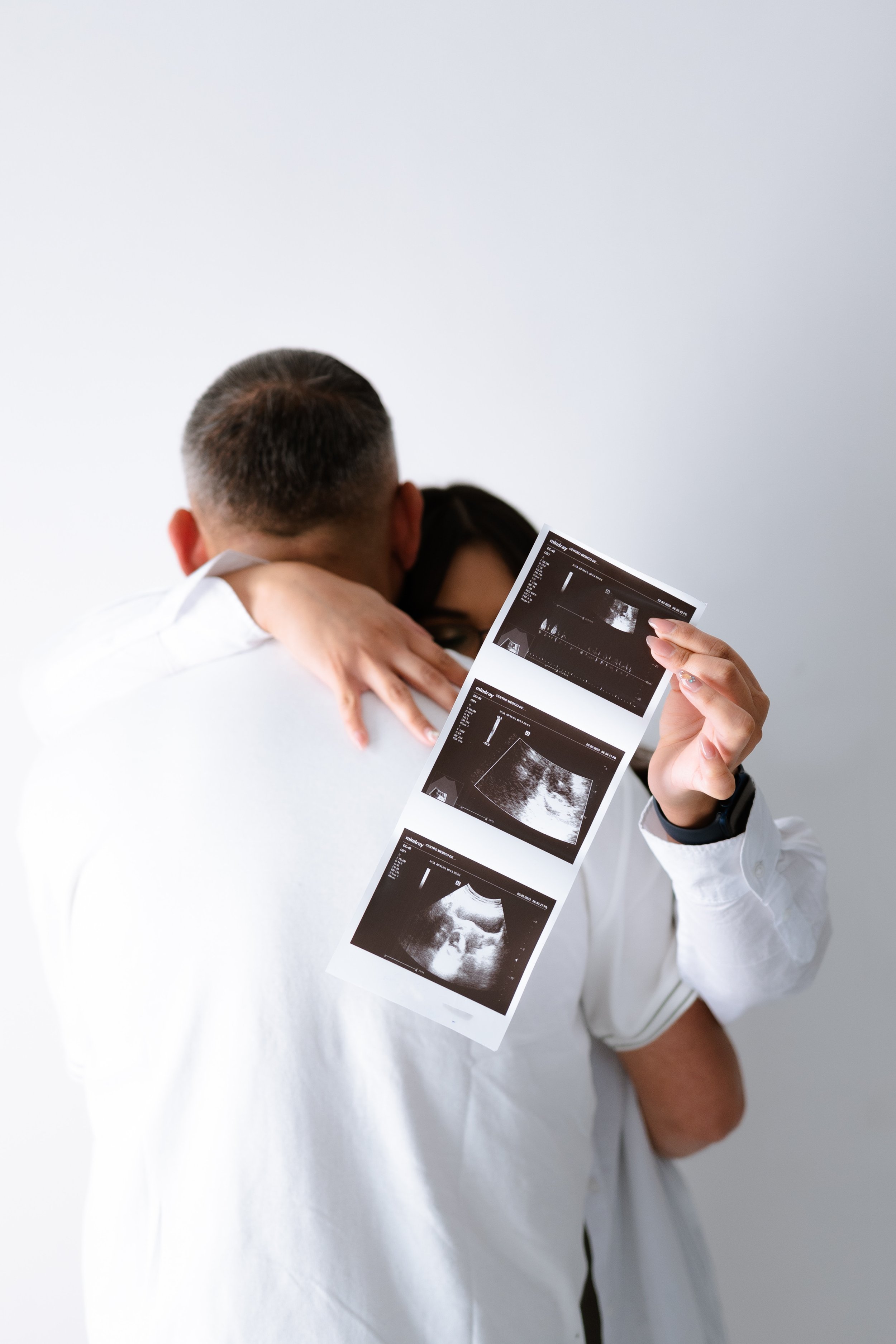
Understanding Preterm Labour: Causes, Risks, and What to Expect
Preterm labour occurs when contractions cause the cervix to open before 37 weeks of pregnancy, leading to the birth of a baby earlier than expected. While every pregnancy is unique, preterm birth can increase the risk of complications for both mother and baby. Early signs of preterm labour may include regular contractions, lower back pain, and changes in vaginal discharge. It's essential to recognize these signs and seek medical advice if you suspect early labour. Understanding preterm labour, its causes, and how to manage it can help you take proactive steps to ensure the best possible outcome for both you and your baby.

What is Hyperemesis Gravidarum and How Can You Manage It?
Hyperemesis Gravidarum (HG) is a severe form of morning sickness that can cause extreme nausea and vomiting during pregnancy, often leading to dehydration and weight loss. This condition goes beyond typical pregnancy discomfort and can significantly impact a woman’s daily life. Learn about the symptoms, causes, and effective treatments for Hyperemesis Gravidarum, along with coping strategies to help manage this challenging pregnancy experience. Understanding HG is crucial for both expectant mothers and their support network, so they can get the care and support needed to feel better.

Preeclampsia Explained: Signs, Symptoms, and Risk Factors
Preeclampsia is a serious pregnancy complication that can affect both mum and baby. It is important to recognise the signs and symptoms early, such as high blood pressure and swelling, to manage the condition effectively. In this blog, we break down everything you need to know about preeclampsia, including risk factors, how it’s diagnosed, and the steps you can take for a healthy pregnancy. Whether you're at risk or just want to be informed, this guide provides essential insights for expecting mums.

Staying Active During Pregnancy: The Benefits of Exercise for You and Baby
Exercise during pregnancy offers numerous benefits for both the mother and baby. Staying active can help reduce common pregnancy discomforts, improve energy levels, support healthy weight gain, and prepare the body for labour. Whether through walking, swimming, or prenatal yoga, regular exercise boosts circulation, strengthens muscles, and improves overall well-being. Always consult with a healthcare provider before starting a new routine to ensure safety for both you and your growing baby. Read on….

Why Sleeping on Your Side is Crucial During Pregnancy
Sleeping on your side during pregnancy is essential for both your health and your baby's well-being. As your pregnancy progresses, side sleeping helps improve circulation, reduces pressure on vital organs, and ensures optimal blood flow to your placenta. It also helps alleviate back pain and reduces the risk of complications like gestational hypertension. By adopting a side-sleeping position, especially on your left side, you can promote a restful sleep and support a healthier pregnancy. Read more here…..

Embracing Plus-Size Pregnancy and Labour: Navigating Your Journey with Confidence
Plus-size pregnancies come with unique considerations, but that doesn't mean your journey can't be empowering and fulfilling. Whether you're navigating the changes of pregnancy or preparing for labor, understanding your body’s needs and knowing how to advocate for yourself can make all the difference. In this blog, we’ll explore key insights and practical tips for a healthy plus-size pregnancy, including advice on labor preparation, healthcare support, and self-care. Embrace your body and your journey with confidence, knowing you’re not alone and there’s plenty of support available for you along the way.

How Hormones Work Their Magic During Pregnancy and Labour
Discover the incredible role hormones play in pregnancy and labor! From nurturing your baby's growth to preparing your body for birth, these natural chemical messengers are the ultimate support team. Learn how hormones like oxytocin, relaxin, and endorphins help you through the journey of labour, easing discomfort and guiding your body’s amazing abilities. Find out more…..

Is Lotus Birth Right for You? Key Information for New Parents
Throughout the last couple of decades, western medicine has faced an increase in a variety of natural methods and labour and birth haven't been left out of these notions. Lotus birth has gained a lot of attention lately, as more and more are choosing to abandon the common practice of severing the umbilical cord soon after birth. Lotus birth is often endorsed as being more 'natural' and more 'peaceful' for both Mumma and baby, but, this birthing practice/placenta ritual isn’t without its share of controversy or risk. Let's shed light on this trend.

Is it normal for my c-section scar to itch?
There are several layers to heal after having a c-section. The obstetrician will cut through skin tissue, move aside muscles, and then make an incision through three layers of the uterus: the inner lining (endometrium); the middle muscular layer (myometrium); and the outer layer (perimetrium).
The skin or external incision will usually heal within the first two weeks of birth. The incision that was made into the uterus takes between 6 to 12 weeks to heal completely. It’s important to follow the instructions of your LMC to ensure your incision heals properly and minimise the chance of any complications. Find out if the itching is normal….

What is Fetal Growth Restriction?
Fetal Growth Restriction (FGR), also called intrauterine growth restriction (IUGR) is a term that describes an unborn baby who isn’t growing at the normal rate inside the uterus. These babies usually have a low weight at birth. Find out more….

Conversations to have before your baby arrives!
In between getting your baby's nursery ready, purchasing all the items you feel you might need and all of the other to-dos that come with having a baby, one of the most important things that often gets pushed to the side is sitting down and talking with your partner about the life change that is about to unfold and prepping for the impact it’ll have on your relationship.
There’s so much focus in our culture on dreaming about pregnancy and dreaming about baby, but not any dreaming about what a family of three (or more) will be like. Find out here.

How painful is BIRTH?
Is this really that bad? How painful will it be, and can I handle it? While birth is different for everyone, birth is painful. But the great news, it’s manageable. In fact, nearly half of first-time mums (46 percent) said the pain they experienced with their first was better than they expected,

Why you need to do Antenatal Classes.
Childbirth is full of wonderment, excitement, joy, trepidation and a huge dose of the unknown.... how am I going to cope? will my partner support me in the way I need? Do I actually have options, can I say no? What if I can't do this? how does my body make breastmilk, can I sleep safely with my baby next to me? What is involved with an epidural? How can I have a natural birth? Do I have to give birth in hospital? These questions and soooooooo many more will be answered during antenatal classes - there is a huge list of benefits and positives for you and your partner or support person.

Congratulations. Welcome to your pregnancy!
Congratulations and welcome to your pregnancy! You've probably got a million questions and you're probably feeling a million different emotions right now, right? Excited, overwhelmed, scared maybe even unsure. We've got the practical advice on everything you need to know right now.

The Perks of Pregnancy.
Sure, you'll probably experience other physical and emotional challenges like morning sickness, sciatica, round ligament pain, haemorrhoids, varicose veins, heartburn indigestion, and mood swings, to name a few. But don't lose sight of all the awesome perks that pregnancy offers too.

How to choose your midwife.
It's completely normal to have a lot of questions and concerns during this exciting time. Midwives are trained professionals who can provide valuable guidance and support throughout your pregnancy journey and beyond.
Not sure what to look for or what questions to ask when choosing a midwife? No worries, we've got you covered during this exciting and nerve-wracking time!

Morning sickness, when does it start? And, can I do anything to help?
There is a big range of morning sickness, and it can vary from pregnancy to pregnancy, symptoms are often described from anything such as a bad hangover, really bad motion sickness to the more severe version known as Hyperemesis Gravidarum (HG) which affects around 2% of all pregnant women. If you are vomiting multiple times in the day, having trouble keeping fluids and food down - you may have HG. You should seek medical advice, as you may be at risk of serious dehydration.

Leg Cramps during Pregnancy - Ouch!
Along with swelling and varicose veins, leg cramps are an annoying part of pregnancy. These painful spasms that radiate through your calves and up your legs are very common. Although they can be felt during the day, they're usually more noticeable at night, when fatigue and fluid accumulation are at their peak (and when you have all that quiet and stillness to ponder them). Knowing what to do when you get a cramp and how to possibly prevent leg cramps from happening can make your pregnancy a bit more comfortable.

What is Vernix Caseosa?
During your pregnancy, vernix plays an essential role, acting as a waterproof barrier to protect your baby’s skin against the amniotic fluid that surrounds them until they are born. Vernix begins to form on your baby at about 20 weeks gestation, partially to prevent your baby’s skin from getting too waterlogged

Shave, Trim or Natural?
There are lots of things women need to do to prepare physically and emotionally for giving birth.
From eating healthily, gaining knowledge about your options, to learning how to look after your tiny human when they're born - there are all kinds of considerations and what to do, if anything about your pubic hair, may be one of them.
Did you know you can easily find specific topics by using the search bar? Simply type in what you're looking for, and you'll be directed to all the relevant information!

